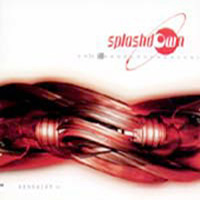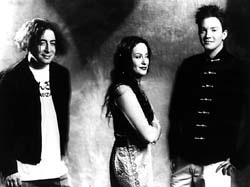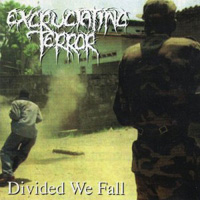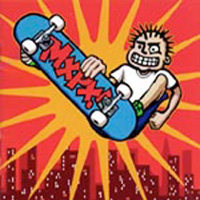 Splashdown
Splashdown
Redshift (Capitol)
An interview with Melissa Kaplan, Adam Buhler, and Kasson Crooker
by Scott Hefflon
The setting: The Model Cafe in Allston
The refreshments: me – shots of Capt. with a Capt/ginger chaser (what are mixed drinks but a chaser, huh?), them: food and soda
The mood: I’m late, a few drinks into the evening, and the moment I sit down and try to spark up (politely asking if it’s OK, as if I ever expect to be told it’s not – if smokers have to go out on a porch, chances are, that’s where all the interesting people are anyway. And who wants to “party” with a bunch of sniveling non-smokers anyway?), I’m asked not to. Strike fuckin’ one.
Melissa: Please forgive me for cutting off your smoking privileges…
Adam: It’s only going to influence the interview a little bit.
Melissa: I just don’t want you to hate me…
Too late. All your answers will end with ellipses… So, tell me what “splashdown” means and why you chose it.
Melissa: Splashdown is when a space ship lands in the ocean…
Adam: During the early years of the space program, the capsules would go through re-entry, do the little parachute thing, and plop down in the ocean to be picked up by helicopters. That was the splashdown. Only one person ever died.
Which one?
Adam: They just recently found the capsule, and it was very controversial. See, the capsule landed in the ocean, and they’re designed to bob and float because of their internal air pressure. This one hit and sank to the bottom of the ocean. They’ve never known for sure whether it was because the guy inside shit his pants and popped the hatch prematurely – they thought he might’ve panicked and killed himself accidentally by being a coward, or the capsule was defective. So now they’ve found the capsule, and the guy’s wife fought tooth and nail to prevent them from dredging it up. But they did anyway.
And?
Kasson (amidst the clatter of food being delivered): They haven’t figured it out yet. We’re really into the retro space future concept.
So what is it about the splashdown that got your attention? What’s it mean to you?
Kasson: We like what is symbolizes. We wanted something that was forward-thinking, but not overtly science fiction. It was really interesting to go back and look at some of the early NASA terminology. The only thing the name doesn’t really embrace is the kind of world music styles we have…
What were some of the names you didn’t use?
All: (ponder, ponder, chew, chew) You should’ve asked us that a few years ago.
Kasson: I keep thinking of when we were trying to name the album…
Adam: We spend a lot of time naming things. Everything needs to be sufficiently open-ended to encompass all the different ground we cover.
You like the single word titles.
All: Yeah.
Adam: And we don’t like to preface titles with the word “The.”
Melissa: Adam came up with Stars & Garters…
Adam: That was a Masonic kind of reference.
Hey, that’s two words and an ampersand…
Adam: But still no “The.” Redshift and Blueshift (the five-song preview EP and the full-length), in the simplest sense, in the measurement of how quickly something is moving toward you or away from you.
Kasson: We just got an email from some guy at Harvard who wanted us to clarify whether we were referring to gravitational forces, like celestial bodies moving, or a Doppler measurement.
Adam: He thought we named it Redshift, even though we didn’t know what it meant, because it sounded cool.
Kasson: And Appetite for Destruction was already taken.
I notice in your bio, there’s a quote from you about how your label experience was not a horror story. With all the delays, I wonder if that quote still stands.
Adam: We’re undergoing the same sort of things every band signed to a major label is going through these days. In terms of making it through the major-label machinery, we’re not getting especially bad treatment, we’re getting what is today’s standard treatment in the late ’90s.
For those lucky enough not to know what that means, please elaborate.
Adam: In order to get a record released, you literally, literally, have to mobilize an army of people who all have to be reading from the same playbook.
Melissa: Not to mention various people leaving and things changing hands…
Adam: It’s a matter of revving the engine on the juggernaut up and up and up until you’re ready to take it out on the road.
Kasson: One of the problems is that when any corporation gets big enough, doing anything takes momentum to get anything done. They have X number of bands coming out, and if one band gets slipped, the band in the next position gets pushed back, and then they have to look at windows of opportunity, because they don’t want to put our record out when they’re putting out a new Garth Brooks or Beastie Boys record. We’ll get lost in the wash.
So at least you get it, and while you’re not happy with being put off, at least you know why and that there’s a good fuckin’ reason for it.
Adam: We’re extremely savvy to the process and all its mechanics, so while we’re as anxious as you could imagine to get the record out there, we don’t want to put it out having not done the build up to it, then watch it go straight down the toilet. This way, it’ll probably dangle on the rim for a while…
Kasson: There’re other things we need to focus on anyway: playing shows, writing new material… There’re always ways to feel there’s forward momentum.
Adam: We’ve never been able to tour before, and now that we’re on the label, they’ve been giving us fantastic tour support, so we’re using the “down time” to travel around the country and spread the gospel. It’s not idle time, and it’s having an electric effect on us and the people we meet.
Tell me about your live set-up?
Kasson: It’s a changing body… We’ve played with as many as six people, and now we’re playing with four. We’ve always known we could never perform live what we do in the studio, so we have to take it in a different direction. Sometimes we use a percussionist, sometimes just a drummer… In the studio, we use a lot of drum programming, so every song has a drastically different drum groove to it, and we want to have that live. At some point, I’d like to have it so that one show will be completely live, and the next will be very electronic. Then it would depend on where we’re playing, who we’re playing with, and how we’re feeling that night.
 Adam: We’re not the kind of band that finds the one thing they’re good at, sticks to it, and pounds that into the ground. We like to constantly put ourselves in situations where we can make horrible mistakes. It keeps it exciting for us, and that’s the only way you’ll learn anything.
Adam: We’re not the kind of band that finds the one thing they’re good at, sticks to it, and pounds that into the ground. We like to constantly put ourselves in situations where we can make horrible mistakes. It keeps it exciting for us, and that’s the only way you’ll learn anything.
What’s the vision? What’s the this-meets-that?
Melissa: We totally don’t do that. All three of us are songwriters, and one of us might be more electronically expressive, and one might be more guitar-oriented, but we all like all the elements, and we all listen to many types of music, so we try to bring that into the band’s music…
Adam: It’s an alien concept to me to be in a band and say, “We’re a metal band, so we’re only going to play metal,” or “We’re an electronic band, so we’re only going to play electronic music.” I can’t understand how people can think that way.
Let me rephrase: I enjoy contradictions and paradoxes, the joy of unlimited “irregularities” and “inconsistencies” in the pattern. The duality of reveling in two opposites simultaneously…
Kasson: It happens on a song-by-song basis, and probably in much smaller increments than that. People have called us “New Age meets rock,” and “electronic meets Nirvana,” but depending on what song you listen to, and what part of what song you listen to, none of those labels stick for long. Every song contains aspects of different genres, with different feels, and with different approaches, so it’s been difficult for people to sum up what we are. We’ll use a Spanish guitar, but we’ll put it over techno…
The bio did a song-by-song saying your “eclectic approach is a veritable pop smorgasbord, feasting on Brazilian bossa novas, Indian ragas, torch songs, ’80s electrofunk, and full-throttle aggro-rock.” While I disagree with almost half the words – and you disagree with the other half – it comes about as close as possible to not getting the point across.
All: (random grumbling and clarifying specifics, as to be expected)
Kasson: Some of my favorite bands, I like purely because of their studio sonics, but can’t stand them as songwriters or lyricists. One of my favorite bands is Weezer, because I think they’re amazing, hooky, pop songwriters, and they don’t use any electronics. There are very few bands that do everything well… Every band has their shortcomings – we have our shortcomings – so it’s hard to list our influences because the bands seem to have nothing at all in common.
Melissa: If you list your influences, when the interview’s over, you’ve misrepresented yourself because you’re listening to other things now…
What are some other influences for you, Melissa?
Melissa: It depends on your perspective… I obviously love world music… and jazz… Queen… some prog rock… Adam just got me the first two Heart CDs… only the first two…
Adam: Prior to the big hair…
Melissa: I listen for good songwriting: XTC, Peter Gabriel, Dead Can Dance, David Sylvian… Japan… Kind of like Duran Duran, but less poppy…
Adam?
Adam: I’ve completely given up on trying to explain what my influences are, and I’m not going to do it anymore.
Melissa: That’s not fair…
Adam: It’s like getting a tattoo – I’ll never get a tattoo because I’d feel like an idiot after a few years because I wouldn’t believe in the tattoo anymore. I’d never want to go on record saying what music I like, because there are tens of thousands of things that I like.
What are your non-musical influences? What do you enjoy when you’re not “being in a band”?
Adam: Sleep.
Kasson: Sleeping is a very important process for us.
Melissa: Trying to sleep, at least…
Adam: A lot of computer games.
Melissa: I worry…
Adam: We all worry a lot, but that’s fun for us. We’re the antithesis of a rock’n’roll band: we don’t party, we’re not hard-drinkin’ party animals… When people meet us, they usually think we’d be better suited as librarians. We’re very bookish.
Melissa: We’re all kind of homebodies…
Adam: What?
Melissa: Homebodies…
Adam: I thought you said “Pol Potties.”
Melissa: I worry about not being productive…
Adam: For every minute of music that winds up on a Splashdown record, there’s 10 hours of dismal, aborted music. We spend a lot of time writing and writing and writing to whittle out the best bits.



